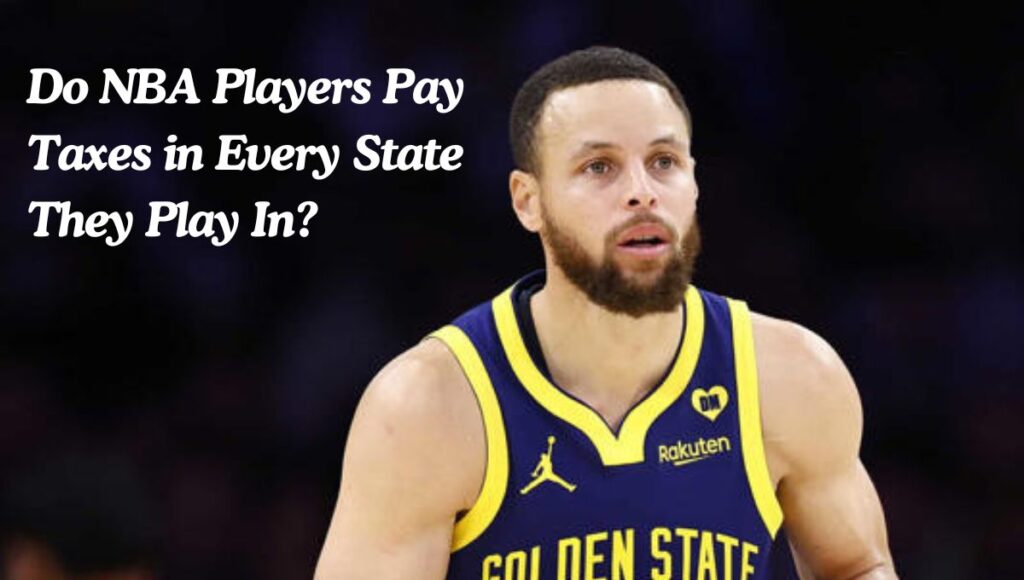The NBA is a global phenomenon, attracting top athletes from around the world. As these players travel from state to state, a common question arises: Do they pay taxes in every state they play in? The answer is complex and depends on various factors, including state income tax laws, federal regulations, and the specific circumstances of each player.

Understanding NBA Player Taxes
NBA players, like any other individual, are subject to federal income taxes.
State income taxes differ widely across the country. While some states impose no income tax at all, others use a progressive tax system. The specific states in which a player plays can significantly impact their overall tax burden.
The Role of Home States
A player’s home state can also influence their tax obligations. Many states have residency rules that determine whether a player is considered a resident for tax purposes. If a player maintains a primary residence in a state, they may be subject to income tax on their worldwide income, regardless of where they play.
Read More:
The Impact of Playing Contracts
NBA players often sign lucrative contracts that include salary, endorsements, and other benefits. These contracts can have significant tax implications. For example, signing bonuses may be taxed as ordinary income in the year received, while deferred payments may be subject to taxes in the year they are actually paid.
Tax Implications of Travel and Away Games
Traveling for away games can create tax-related challenges for NBA players. While they may spend a significant amount of time in other states, they generally are not considered residents of those states for tax purposes. However, there may be specific rules regarding temporary residency and the deductibility of travel expenses.
The Role of Tax Agents and Advisors
Given the complexities of NBA player taxes, it’s essential for players to have experienced tax agents and advisors. These professionals can help players understand their tax obligations, identify potential deductions and credits, and develop effective tax planning strategies.
Notable Tax-Related Incidents
Over the years, there have been several high-profile cases involving NBA players and tax issues. These cases have highlighted the importance of proper tax planning and compliance. By learning from the mistakes of others, players can avoid costly errors and penalties.
Tax Reform and NBA Players
Tax laws can change over time, and NBA players need to stay informed about any new tax reforms that may affect them. Changes in tax rates, deductions, or credits can have a significant impact on a player’s overall tax burden.
Conclusion
The question of whether NBA players pay taxes in every state they play in is a multifaceted one. While federal income taxes apply to all players, state income taxes can vary significantly. Factors such as home state residency, playing contracts, travel expenses, and tax planning strategies all play a role in determining a player’s tax obligations. By working with qualified tax professionals, NBA players can ensure that they are meeting their tax responsibilities and maximizing their financial returns.
FAQs
Do NBA players pay taxes on their endorsement income?
Yes, NBA players are required to pay taxes on their endorsement income, just like any other form of income.
Can NBA players deduct travel expenses related to away games?
In general, NBA players can deduct travel expenses related to away games as business expenses. However, there may be specific rules and limitations that apply.
Are NBA players subject to self-employment taxes?
No, NBA players are not considered self-employed. They typically receive salaries from their teams and are not responsible for paying self-employment taxes.
Can NBA players claim deductions for charitable contributions?
Yes, NBA players can claim deductions for charitable contributions, subject to certain limitations and requirements.
What is the best way for NBA players to save for retirement?
NBA players have access to various retirement savings options, including traditional and Roth IRAs, as well as team-sponsored retirement plans. Consulting with a financial advisor can help players determine the best retirement savings strategy for their individual needs.